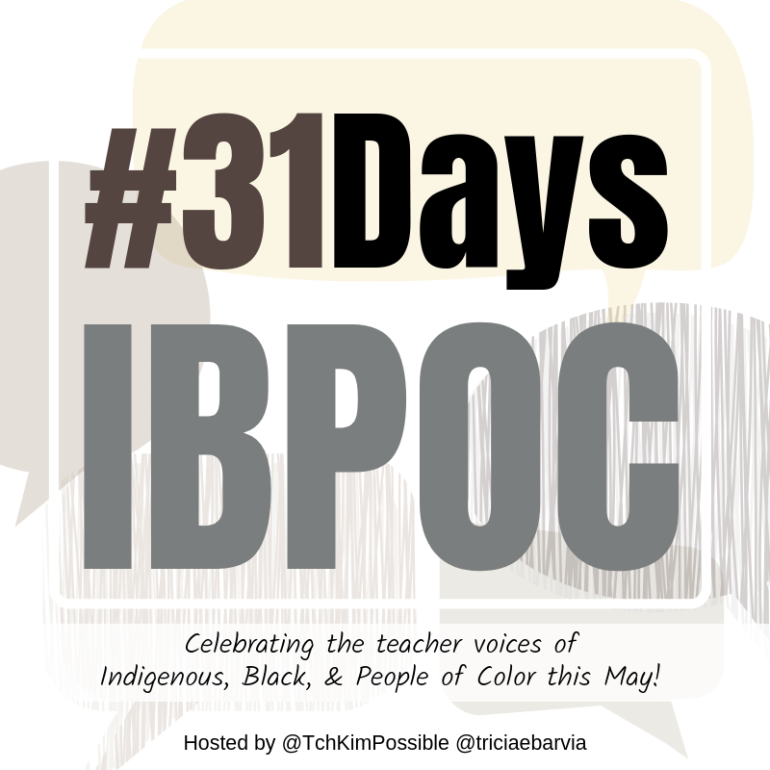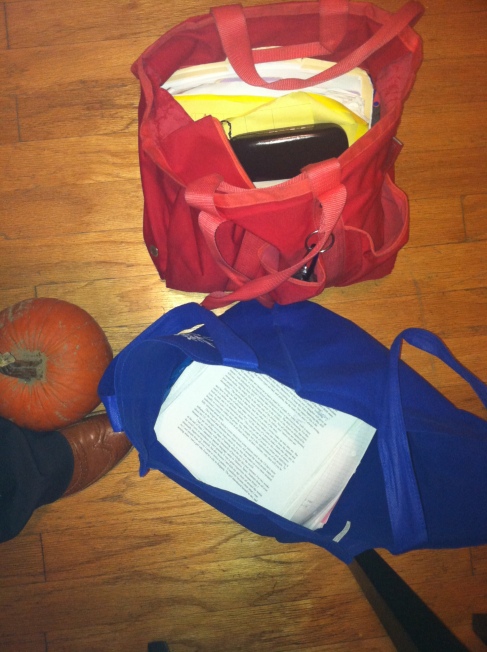My class is hard. I’m not going to lie. I ask kids to do a lot of reading, writing and thinking, and they complain but they generally do their work. That fact–that they always do their work–has taken some adjusting, as I tend to get about 80-95% of a return on my assignments in general if I’m lucky. Now, I’m probably always going to get 100%.
What I’ve found is that the kids of color and the low income kids are struggling mightily. I’m starting to (warmly) demand that they schedule conferences to talk about their work, checking in with them more frequently, encouraging them to stick with it. I need them to realize, through my words, my actions and my beliefs, that they can do this work. It’s gonna be hard as all get out, but they can do the work.
It’s discouraging when I give out grades and one student’s score has moved incrementally. I want to rage with her, at me (are you really doing right by these kids? I often goad myself). But then, just when I’m at the point when I’m wondering what I’ve gotten myself into and if my approach is wrong, the literature gives me an answer.
In this case, there were a few minutes last week before all my writing conferences began, and three of the kids were hanging out (I think one had intentionally “confused” his conference time and wanted to chat sooner rather than later; I obliged). I asked them some questions about their lack of participation, and one brave soul admitted that she felt intimidated by the vocabulary her peers were using. I told her that half the time, they weren’t even using the words correctly; rather, what mattered was that they were trying. That’s how you learn, I said. You got to get the words into your mouth, turn them around, so that they begin to feel like your own. Most of this work we’re doing, I continued, is about a willingness to try, and to know that yes, in the beginning we might all feel like we’re clueless, but at least we keep trying.
We’d just talked about post-colonialism and Othering and the Other, and I said something to the extent of, “You’re letting them Other you. You can’t let that happen. In a way, too, you’re Othering yourself because you think you can’t do it. Don’t let your fear win.”
Silence.
But that’s what it was, othering, on multiple levels: their silence building, their fear of not knowing preventing them from even trying to speak at all. After that conversation, I became even more aware of interactions and discussions and creating spaces for kids to enter into the talk of a classroom. (Funny how I forget my own hesitancies and reluctance when I’m talking to kids. I know exactly what it feels like to sit in a group and sweat and worry about how to interject, how to disagree, how to offer something new to the conversation. That’s why I’m trying to figure out how to get them involved.)
This week, we’re about to celebrate the National Day of Writing and a student’s father, who’s a poet, is coming in tomorrow to do some reading with us. He’s asked kids to read an Adrienne Rich essay, “Women and Honor: Some Notes on Writing,” as well as having them read several versions of a poem. I asked him to show them his process, of how a draft moves from an idea, through revision to a momentary final poem. He’s agreed, and I’m so stoked to see this all play out tomorrow.
I gave the essay out yesterday (Wed.) with the instruction to read it in preparation for Friday. One student, of the three that stayed behind last week, came into homeroom and said she was up all night reading Adrienne Rich.
Um, stop. Rewind. HOLD UP. She showed me her thoroughly annotated essay, pointing out places where she agreed with Rich, bold paragraphs marked to indicate where she was moved and inspired.
“I have lots to say,” she said. “I’m going to speak up. I can’t wait.”
And I still need to unpack everything that happened in that moment and I’m sure after tomorrow, when they blow my head open with their talk I’ll have to unpack even another suitcase, but here we were, a teacher who was quickly running out of strategies and a student who sincerely doubts herself, and there’s Adrienne Rich, offering us a way through.
Much of teaching is about trust: can you work with students, create a community that encourages them to take risks, to listen to each other, to try new ways to write, to read to think. I’ve also found that it’s about just telling them when you make a mistake (sorry, that timeline I proposed was entirely unrealistic. My class is not the only class you’re taking; let’s rethink); that you’re off your game (yup, I was up grading so I’m not going to get that other thing back to you today); that you don’t know (seriously, I’m going to have to look up this punctuation rule; I just don’t remember it).
This truth is incredibly freeing, and the start of something meaningful.
Rich: Yet, if we can risk it, the something born of that nothing is the beginning of our truth.
Maybe this is the beginning of their truth, too.




Conversations with Student Writers
When my students submit a draft, I ask them to give me some areas of particular growth that they’d like my feedback on. Here, a couple of my comments in response to a student:
After reading her draft: I would like to see your writing become more sophisticated. I think one place to start is with sentence variety and sentence length. You have lots of choppy sentences that are just…boring. From this draft, I can tell you can write. Now, you have to push your limits. Go.
She asked, “Can you detect my voice in my essay?” [Side note: what a brilliant, BRILLIANT question from such a young writer. My heart, my smile…VOICE?! Remind me to write about what Keith Gilyard said about voice that made everything crystal clear-ish to me about that].
Me: It’s there, hidden underneath some dry language. You actually have a voice that is quite poetic. You’ll develop it this term. It will be fun.
Indeed, it will be–and is–fun. I needed a reminder of the joy I have working with my students. March attempts to wring it from me as it marches forth (ha), but there is such joy in this work…
2 Comments
Filed under Student Interactions
Tagged as comments, drafts, feedback, students, voice, writing